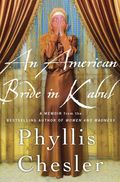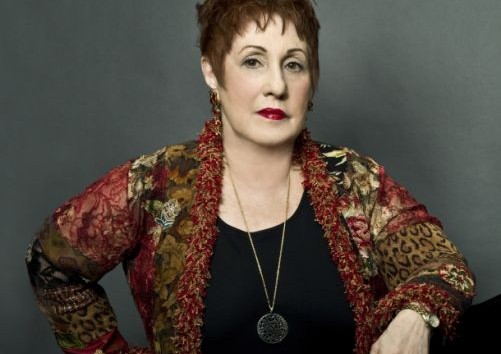“American Bride in Kabul” Wins National Jewish Book Award
 The National Jewish Book Council (NJBC) announced on January 15, 2014 its 2013 awards for books in several categories. Dr. Phyllis Chesler’s memoir, An American Bride in Kabul published by Palgrave Macmillan won The Krauss Family Award in Memory of Simon & Shulamith (Sofi) Goldberg in the category of Biography, Autobiography and Memoir. We reviewed Dr. Chesler’s memoir in the January 2014 New English Review edition, Flight from an Afghan Seraglio. In our introduction to the review we noted:
The National Jewish Book Council (NJBC) announced on January 15, 2014 its 2013 awards for books in several categories. Dr. Phyllis Chesler’s memoir, An American Bride in Kabul published by Palgrave Macmillan won The Krauss Family Award in Memory of Simon & Shulamith (Sofi) Goldberg in the category of Biography, Autobiography and Memoir. We reviewed Dr. Chesler’s memoir in the January 2014 New English Review edition, Flight from an Afghan Seraglio. In our introduction to the review we noted:
This reviewer had first heard the elements of this memoir over a decade ago from the author. Like many others who had, we urged her to record this fascinating encounter with Islamic gender apartheid that had endangered her life in Afghanistan. Chesler subsequently wrote limited treatments of the episode in a chapter of her book, The Death of Feminism: What’s Next in the Struggle for Women’s Freedom and a Middle East Quarterly article in 2006, “How Afghan Captivity Shaped my Feminism.”
The NJBC award to Dr. Chesler recognizes the promise of those encouraging remarks made a decade ago. Also see our Interview with the author, An American Feminist Fighting Sharia in the January 2014 edition.
We extend our congratulations to Dr. Chesler and her family. We hope with the NJBC award for An American Bride in Kabul it will become a breakthrough book to educate Americans on the problematic values, practices and attitudes towards women in Islamic cultures. Dr. Chesler’s award will be conferred on March 6, 2014 at the New York City –based, Center for Jewish History.
The following is the NJBC précis of Chesler’s memoir:
In 1961, Phyllis Chesler arrived in Kabul with her Afghan bridegroom and authorities took away her American passport, making her the property of her husband’s family, with no rights of citizenship. Her husband, a wealthy, westernized foreign college student, reverted to traditional and tribal customs. Chesler found herself unexpectedly trapped in a posh polygamous family, with no chance of escape. She fought against her lack of freedom, her Afghan family’s attempts to convert her from Judaism to Islam, and her husband’s wish to permanently tie her to the country through childbirth. Drawing upon her personal diaries, Chesler recounts her ordeal, the nature of gender apartheid, and her longing to explore this beautiful, ancient, and exotic country and culture. Chesler nearly died there but she managed to get out, and became an author and an ardent activist for women’s rights throughout the world. An American Bride in Kabul is the story of how a naïve American girl learned to see the world through eastern as well as western eyes and came to appreciate Enlightenment values.
EDITORS NOTE: This column originally appeared on The New English Review.


